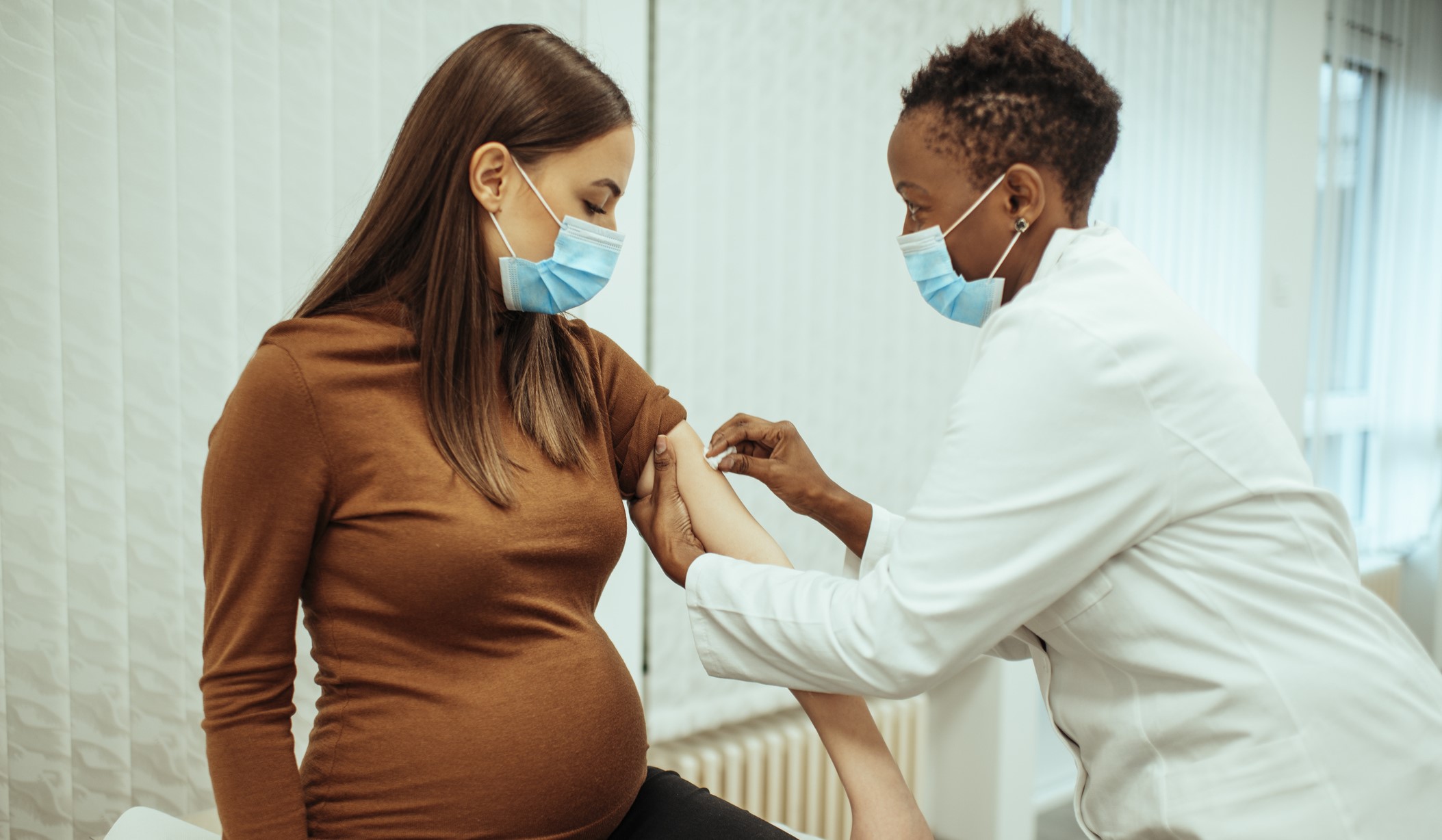As the COVID-19 vaccine becomes available to a broader range of ages and occupations, women who are pregnant or breastfeeding may be starting to think about what they should do when the vaccine becomes available to them. Vivian Mishan, MD, FACOG, an OB/GYN at Women’s Health Specialists of CentraState, answers your questions on COVID vaccination, pregnancy, and breastfeeding.
SHOULD PREGNANT PEOPLE GET THE COVID VACCINE?
Health experts at the Centers for Disease Control and Prevention (CDC), the Advisory Committee on Immunization Practices (ACIP), and American College of Obstetricians and Gynecologists (ACOG) all recommend that pregnant individuals consider receiving the COVID vaccine, said Dr. Mishan, especially if they have other comorbidities, are healthcare personnel or other frontline essential workers.
“The benefits of receiving the vaccine may outweigh the risks,” Dr. Mishan said. “But pregnant patients also need to discuss their underlying health concerns with their doctor.”
When having that discussion with their physician, it’s important to consider that both the Pfizer and Moderna vaccines are mRNA vaccines, and preliminary studies show mRNA vaccines are not a risk during pregnancy. Further research is underway. The Johnson & Johnson vaccine uses a technology that has previously been well studied and implemented in other vaccine-preventable diseases that included pregnant people.
Pregnant women will also want to weigh their risk of developing a severe case of the illness when considering whether the vaccine is the right choice for them. The CDC cites that the risk of developing a severe case of COVID-19 during pregnancy is low. But compared with non-pregnant patients, those who contract COVID-19 while pregnant are at increased risk of a serious case, requiring hospitalization, needing a ventilator and even death, according to U.S. data. Also, pregnant women with COVID-19 may be at a higher risk of delivering prematurely than those without COVID-19.
“By pairing the known vaccine facts with any risk factors, potential for exposure, and personal preferences, those who are pregnant can make the best decision for their own situation,” Dr. Mishan said. “High-risk patients should discuss the vaccine with their physician and determine the best decision to meet their individual needs. Pregnant patients who decline the vaccine are supported in their decision.”
DOES THE VACCINE CAUSE INFERTILITY?
“There is no correlation between infertility and receipt of the vaccine,” Dr. Mishan said.
While clinical trials did not explicitly study fertility, no data indicated a fertility loss with the COVID vaccine. There is no recommendation for routine pregnancy testing before receipt of a COVID-19 vaccine. Those who are trying to become pregnant do not need to avoid pregnancy after getting vaccinated. There is no evidence that any of the COVID-19 vaccines affect future fertility.
CAN THE COVID-19 VACCINE INCREASE THE RISK OF MISCARRIAGE?
Dr. Mishan explained there is no indication that the COVID-19 vaccine increases the risk of miscarriage. “There is not enough data presented to support the idea that the vaccine causes miscarriage,” she said. “The COVID-19 vaccines do not use live virus so there is an unlikely risk to a developing baby.”
Dr. Mishan explains that the mRNA directs the body to produce antibodies to fight the COVID-19 infection, similar to how it naturally fights infections. “We just have not seen any indication of pregnancy complications in the population of vaccinated patients,” explained Dr. Mishan.
DOES THE VACCINE AND COVID INFECTION PASS ANTIBODIES TO MY BABY?
“There is a strong indication that antibodies pass from mother to baby through the placenta and breastfeeding,” Dr. Mishan said. “This may point to vaccines being able to transfer antibody protection to babies.”
In fact, one study in the publication JAMA Pediatrics showed that 87% of pregnant people infected with COVID-19 transferred antibodies to their newborn babies, giving some protection against COVID at birth, Dr. Mishan said.
“This is a positive indicator for antibody protection,” explained Dr. Mishan. “The study also suggested the earlier and more severe a patient is infected in pregnancy, the more antibodies are transferred to their fetus.”
WHEN IS THE BEST TIME TO GET THE VACCINE DURING PREGNANCY?
It is not clear if there is a better time to receive the COVID-19 vaccine during pregnancy due to the lack of clinical trials in pregnant women.
While infected pregnant women can provide antibody protection to their newborns through the placenta, so can maternal vaccination. However, to protect the infant, the vaccine’s timing for the pregnant person would have to be at least four weeks before delivery. First-trimester vaccination and even late in the third trimester could still protect those who are pregnant. Therefore, vaccinating a pregnant woman starting early in the second trimester may be the best time to achieve the highest levels of antibodies in the newborn.
Similar to other maternal vaccination recommended to combat preventable diseases in infants, such as pertussis (Tdap) and influenza, antibody protection in newborns acquired through pregnancy fades by the second month of life and continues to drop so that by 6 to 12 months, the infant needs their own vaccination.
IS IT SAFE TO BREASTFEED IF VACCINATED WITH THE COVID VACCINE?
The CDC and ACOG recommend that lactating women consider receiving the COVID-19 vaccine, especially taking into account their risk of exposure and potential complications from underlying conditions.
“There is limited data on the safety of COVID vaccines for breastfeeding people. However, ACOG believes the benefits of vaccinating outweigh the risks. There is no need to discontinue or not begin breastfeeding after receiving a COVID vaccine,” Dr. Mishan explained.
The information in this article is the most up-to-date as of publication. Please note that as experts learn more about COVID-19, guidance and recommendations may change. Be sure to check the Centers for Disease Control and Prevention (CDC) for the most up-to-date information.



